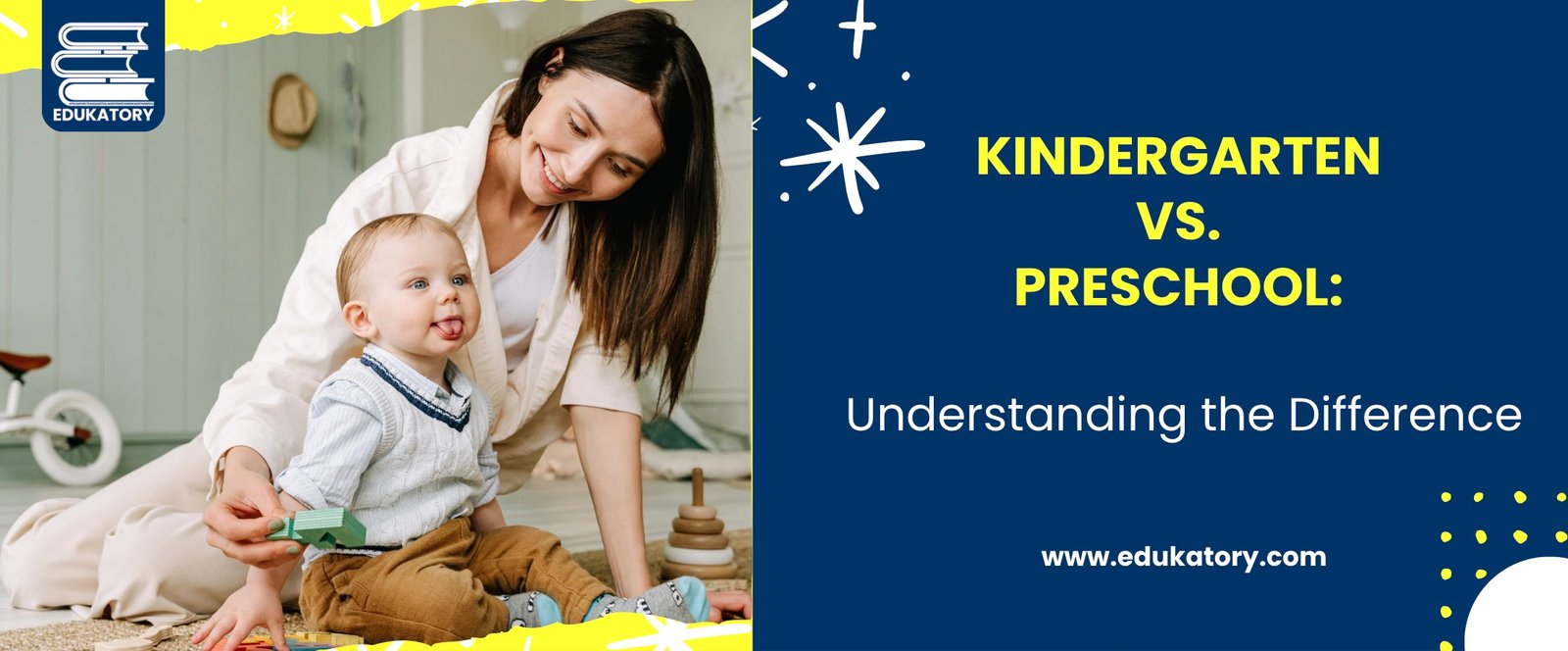Parents often ask: Are preschool and kindergarten the same thing? While both are important in preparing children for school, they actually serve different purposes and focus on different stages of development.
What is Preschool?
- Age group: Usually for children ages 3 to 4
- Approach: Play-based learning where children explore, create, and interact
- Focus areas: Social skills, emotional development, and motor skills
- Environment: Gentle introduction to classroom routines, sharing, and group activities
Preschool is not about heavy academics. Instead, it’s about helping children feel comfortable in a group setting, teaching them to follow routines, and encouraging curiosity. Children learn through songs, games, storytelling, and hands-on play.
What is Kindergarten?
- Age group: Typically for children around 5 years old (before entering Primary 1)
- Approach: More structured compared to preschool
- Focus areas: Early academics like reading, writing, numbers, and problem-solving
- Environment: Prepares children for the formal structure of elementary school
In kindergarten, children still learn through fun and interaction, but the lessons are more focused on foundational academic skills. They start practicing letters and numbers, listening to instructions, and building confidence for Primary 1.
Key Differences Between Preschool and Kindergarten
- Learning Goals
- Preschool emphasizes socialization, creativity, and curiosity.
- Kindergarten emphasizes early literacy, numeracy, and structured learning.
- Daily Routine
- Preschool days are filled with play, exploration, and flexible activities.
- Kindergarten has more structured schedules, including lessons, seatwork, and group projects.
- Teacher Role
- Preschool teachers act as guides in exploration and social interaction.
- Kindergarten teachers balance guidance with academic instruction and classroom management.
- Child Development Focus
- Preschool develops fine and gross motor skills, emotional awareness, and social cooperation.
- Kindergarten develops independence, critical thinking, and readiness for formal schooling.
Practical Tips for Parents
How do you know if your child is ready?
✔️ Signs your child may be ready for preschool:
- Can separate from parents for a few hours without distress
- Shows curiosity about exploring and playing with other children
- Can follow simple instructions (like tidying up toys)
- Begins to use words to express needs and feelings
✔️ Signs your child may be ready for kindergarten:
- Recognizes some letters, numbers, shapes, or colors
- Can sit and focus on a short activity (10–15 minutes)
- Listens to and understands simple stories
- Starts to show independence (dressing themselves, using the bathroom)
- Can interact and share with peers in a group setting
Remember, every child develops at their own pace. These are just general indicators, not strict rules.
How Preschool and Kindergarten Work Together
Preschool and kindergarten are not competing stages; they are complementary. Preschool lays the foundation for social, emotional, and basic learning readiness. Kindergarten then builds on that foundation, guiding children into structured academics and preparing them for elementary school success. Together, they create a smoother transition for children as they move into lifelong learning.
Common Misconceptions
- “If my child goes to preschool, they can skip kindergarten.”
❌ Not true. Kindergarten introduces essential academic readiness skills that preschool does not fully cover.
- “Kindergarten is too academic and stressful.”
❌ While more structured, kindergarten still balances play and creativity.
- “Preschool is just babysitting.”
❌ Preschool provides intentional learning experiences that shape a child’s development.
Which is Right for Your Child?
- Preschool is best if your child is still very young, needs more socialization, or is just starting to be independent. It gives them the chance to adjust to being in a group and prepares them emotionally.
- Kindergarten is the next step once your child is ready for more structure and academic exposure. It bridges the gap between play-based learning and formal schooling.
Final Thoughts
Both preschool and kindergarten are important. One is not a replacement for the other, but rather a natural progression in your child’s learning journey. Preschool gives children a foundation of social and emotional readiness, while Kindergarten builds on that foundation with more structured academic preparation.
At Edukatory.com, we guide parents in finding the right fit for their child’s age, readiness, and personality. Whether you’re looking for a nurturing preschool or a structured kindergarten program, we help you discover schools that meet your family’s needs.

